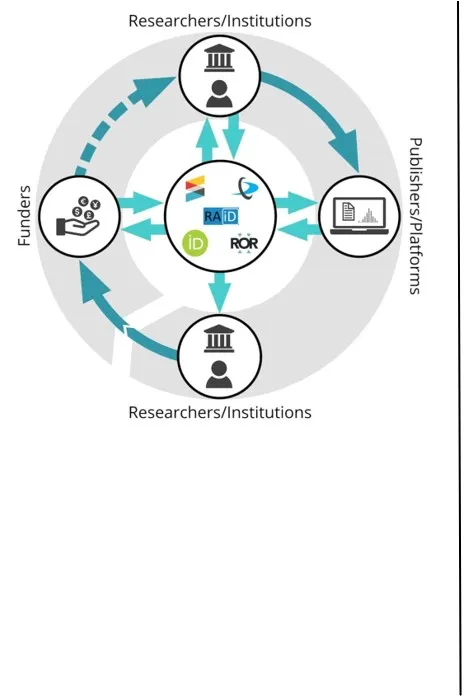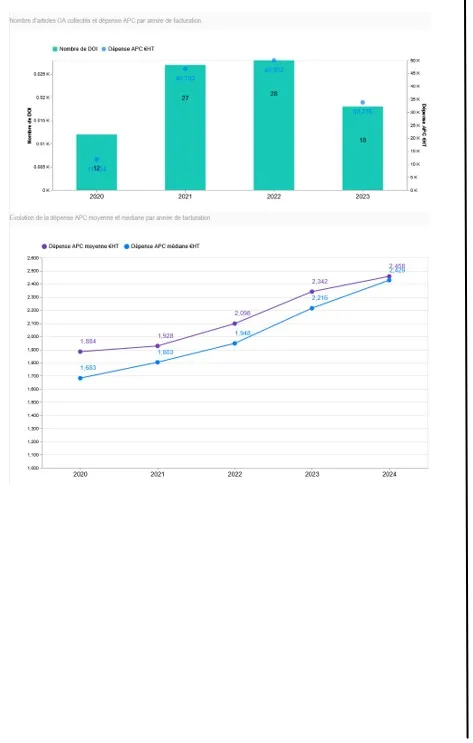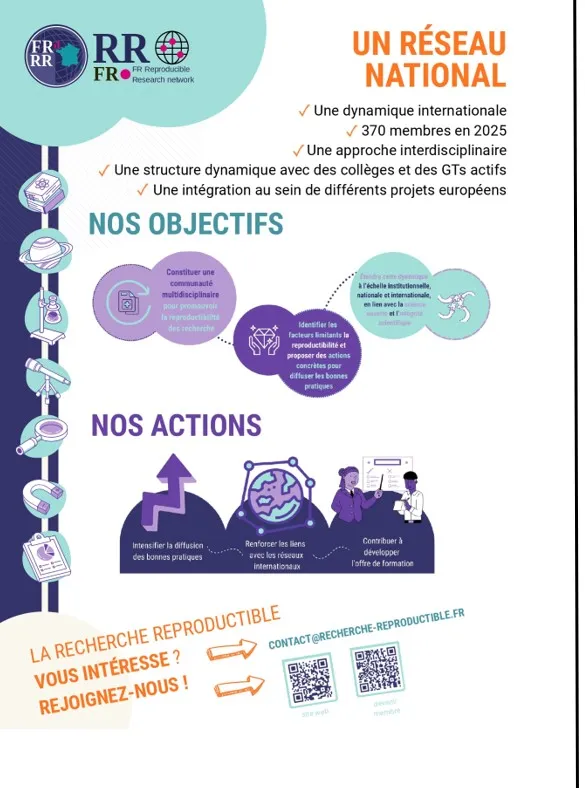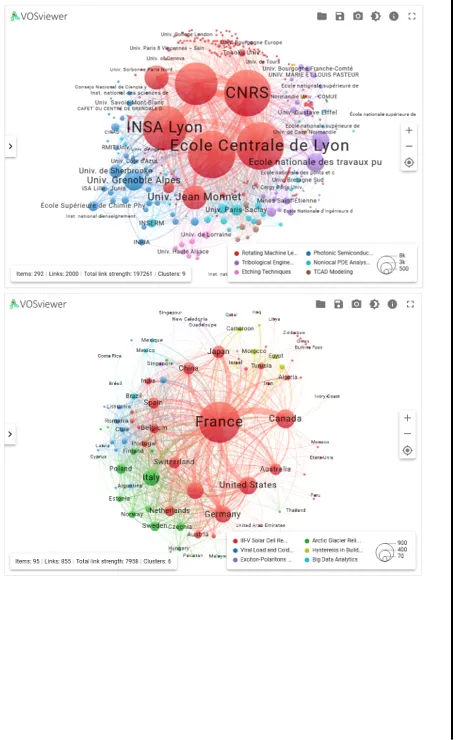
Services
"Tell us once": Persistent Identifiers and Administrative Simplification
How can we reliably link a researcher to all his or her research activities (publications, projects, data, codes, reviews...)? The answer lies in the systematic use of Persistent identifiers (PIDs) assigned to contributors as well as to research objects and results. These PIDs already exist - ORCID, IDHAL, ResearcherID for researchers for example; DOI for publications. But they are multiple and do not necessarily communicate with each other.
A national policy on DOIs in higher education and research is being implemented to address this issue. It aims to promote the widespread adoption of two key identifiers: ORCID for authors and ROR for institutions.
In practical terms, this means that the library is already working on cleaning and harmonizing the reference databases for researchers and research structures linked to Centrale Lyon, and will support researchers in creating/updating their ORCID and IDHAL profiles. Short workshops and individual appointments will be offered shortly.
MORE INFORMATION: Consult the Recommendations for the adoption of persistent identifiers in higher education and research, published in September 2025, or the results of the 2023 national survey on the use and usages of researcher digital identifiers in France.
It Happened at Centrale Lyon...
Annual Survey on Publication Fees: A Downward Trend
Since 2021, the library has been completing the annual national survey on publication-related expenses on behalf of Centrale Lyon. The aim is to monitor the evolution of these costs, which largely correspond to APCs (Article Processing Charges for open-access publishing), both within the laboratories and at Centrale Innovation.
After a period of increase for publications from 2020 to 2022 (nearly €50,000 in 2022), the trend has reverses over the past two years: €33,800 in 2023 and €17,700 in 2024. This decrease can logically be explained by the growing use of Read & Publish ageements with publishers. In 2024, 25 articles by Centrale Lyon researchers benefited from such agreements. If the corresponding APCs had been paid, the total cost would haver reached 84,710 €.
However, these agreements raise concerns: they implicitly validate the author-pays model and contribute to a rise in open-access publications that justifies increasing subscription fees - often at the expense of more sustainable alternatives. Future challenges lie both in controlling the annual rise in subscription costs and in promoting alternatives to pay-to-publish: diamond open-access journals (with no subscription or publication fees), depositing in and the rights retention strategy.
For the first time in 2025–2026, the library is contributing to the funding of a diamond open-access journal: Acta Acustica.
MORE INFORMATION: The data from the annual publication fee surveys are open and available online on the Couperin website and on OpenAPC.
Resources
A Focus On Reproducibility
A new edition of the "Replication Games" took place in Paris at the beginning of October. The event, created by the Institute for Replication (I4R) at the University of Ottawa, brings together researchers to carefully examine several papers and test whether their results can be reproduced.
This news is a great opportunity to highlight several useful resources related to research reproducibility:
- The French Reproducible Research Network, which offers a website, resources, and a newsletter - recherche-reproductible, accessible via Renater. This national network is part of the Global Federation of Reproducibility Networks, which brings together similar initiatives from around the world.
- MOOCS on reproducible research, such as INRIA's Reproducible research: methodological principles for transparent science or OpenAIRE's TIER2 Reproducibility Training Course.
- The ebook Vers une recherche reproductible, available in open access on HAL.
- The recent webinar La problématique de la reproductibilité pendans la thèse, organized by UGA, featuring insights and feedback from three doctoral students.
Tools
OpenAlex and ScanR For Open Indexing of French Research
When thinking about bibliographic databases of scientific publications, two names immediately come to mind: Web of Science (WoS) and Scopus, — both proprietary, subscription-based solutions that form the basis of most international surveys and rankings. Given the limitations of these closed systems, the French Ministry of Higher Education, Research and Space (MESRE) has supported or initiated alternative initiatives offering open and free databases.
- OpenAlex is a bibliographic database provided by OurResearch, a non-profit organization. It stands out for being free, open, decentralized, and broadly comprehensive in terms of languages, disciplines, and types of research outputs (preprints, theses, patents, datasets, etc.). The tool is constantly evolving and has been part of a partnership with MESRE since 2024.
- ScanR is a tool created and managed by MESRE, designed to map the entire French research landscape — not only publications but also authors, research organizations, and funding. It provides an exploration interface with data and network visualizations (links between authors, institutions, research topics, etc.). ScanR can also be adapted locally for a specific institution (for example, Centrale Lyon) or a laboratory.
Feel free to explore these two tools and contact us if you would like more information!
MORE INFORMATION: Université Grenoble Alpes recently published a comparative study between OpenAlex and WoS data, offering valuable insights. For a general overview of ScanR, we recommend the webinar available on Couperin's Canal-U channel; for OpenAlex, see the session offered by the Renatis network.
Readings
Our research services newsletters are the result of ongoing monitoring, centralized in a public Zotero library and organized by themes: the publishing ecosystem, research data, scientific integrity, code and software, and more. You can browse this curated collection and access the various articles directly here !
Events (Training, Conferences…)
The CNRS Institute for Scientific and Technical Information is offering several webinars between now and the end of the year, on the topics of research data management and bibliographic research:
- Presentation of BibCnrs | 13/11 - 11am and 11/12 - 11am
- Principes FAIR et cycle-de-vie des données | Tuesday 18/11 - 14h-15h30 - on registration
- Data management plan: good writing practices | Tuesday 25/11 - 10am-11:30am - on registration
- Click & Read: the magic extension | 25/11 - 11am and 16/12 - 11am
- Prendre en main DMP OPIDoR pour créer votre PGD | Thursday 11/12 - 14h-15h30 - on registration
The 4° edition of Université Grenoble Alpes' Open Science Days will take place from November 25 to 27, 2025. In-person registration is full, but the events will be streamed online.
This year, the conference will explore the topic of generative AI in the era of open science through four sessions:
Challenges of artificial intelligence for research, institutions, and laboratories
The diverse interconnections between open science and artificial intelligence
Overview of open science and AI practices
Limits to the use of artificial intelligence
The full program is available on SciencesConf.
In 2018 was published the anthology Open Divide: Critical Studies on Open Access gathering 13 contributions from researchers and information professionals from various continents, with the aim of understanding the transformation of scientific communication in the age of open access.
In 2025-2026, the initiative is renewed with new monthly contributions. The next ones are open for registration:
- 26/11 - 17h : A critical examination of market-driven open access models and alternative, community-centered approaches to scholarly publishing | Sam Moore, University of Cambridge, UK
- 17/12 - 17h : An exploration of how shadow libraries enable alternative forms of knowledge preservation and dissemination | Zakayo Kjellström, Umea University, Sweden
- 28/01/26 - 17h : The Global South's Role in Shaping the Open Science Paradigm | Joachim Schöpfel (Université de Lille), Hélène Prost (INIST-CNRS), Behrooz Rasuli (Iranian Research Institute for Information Science and Technology, Iran)
- 25/02 - 17h : The Promise and Perils of Transparency and Openness | Kevin Elliott, Michigan State University, USA
Training courses offered by Urfist Lyon; find the list of training courses offered by Urfist Lyon here.
- First steps in research data, Thursday 27/11 2pm-4pm - distanciel, on registration
- Managing your documentary resources with Zotero: advanced, Friday 28/11 9:30am-12:30pm - distance learning, on registration
- Writing your Data Management Plan: which tool to choose?, Tuesday 02/12 9:30am-12:30pm - distance learning, on registration
- Managing your bibliographic resources with Zotero : initiation, Tuesday 02/12 9:30am-1pm - hybrid, on registration
- Datavisualisation Design : creating impactful infographics, 04/12 9am-12pm - distance learning, on registration
- Identify, analyze, visualize: master advanced bibliography with VOSviewer, 04/12 9:30am-12:30pm - distance learning, on registration
- Introduction to open science, 05/12 9:30am-12:30pm - distance learning, on registration
Questions? Contact us!
For any questions about open science, please feel free to contact us via the form "Research Services - Open Access, HAL, Bibliometrics".



